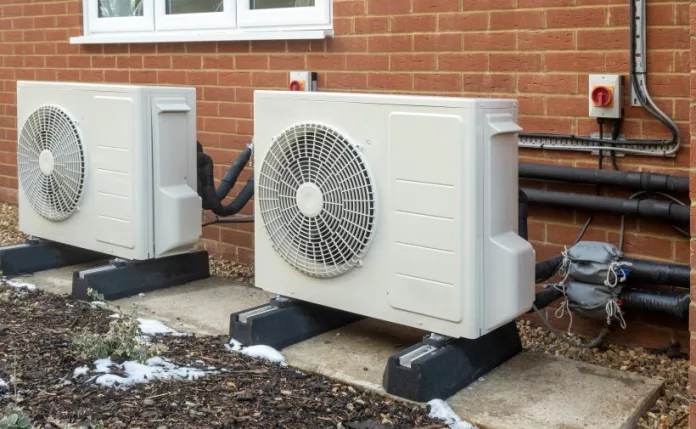With the potential to revolutionize home energy efficiency, air-source heat pumps have caught the attention of researchers who see immense benefits for many American homes. However, the prohibitive costs of installation stand as a significant barrier to widespread adoption, as detailed in a study by the esteemed team at the U.S. Department of Energy‘s National Renewable Energy Laboratory (NREL).
A Detailed Study Unveils Significant Savings
An in-depth study published in Joule takes a comprehensive look at the feasibility of heat pumps across a swath of the U.S. housing landscape. The study spanned an impressive array of 550,000 homes, assessing factors like climate, existing heating infrastructure, and home insulation. It suggests that a staggering 62% to 95% of households might see reduced energy costs from deploying heat pumps, a figure that can surge to 82%-97% with improved home insulation.
The Financial Feasibility of Heat Pumps
According to Eric Wilson of NREL, while millions could reap the financial benefits of heat pumps thanks to incentives like tax credits and rebates from the Inflation Reduction Act, installation costs still pose a substantial obstacle. Wilson’s research aims to spotlight the need for reduced installation prices to make this technology accessible to more households.
The Comfort-Cost Equation
For residents without existing air conditioning, heat pumps offer the allure of increased comfort. Yet, this comfort can come with a cost spike, not least because of installers possibly inflating charges due to their unfamiliarity with the new technology. This is an industry-wide challenge as the marketplace adjusts to heat pump installations.
Energy Savings vs. Energy Cost Savings
The NREL team found that replacing traditional heating systems with heat pumps could slash home site energy consumption by a hearty 31% to 47%, which could jump to 41%-52% when combined with building insulation upgrades. Interestingly, this does not always translate to equivalent energy cost savings, particularly in areas where natural gas remains a cheaper alternative to electricity.
Fuel Types and Air Conditioning: Key Factors
When breaking down the impact by fuel type and air conditioning presence, the researchers highlighted that a vast majority of homes could experience significant annual savings, especially when propane, fuel oil, or electricity are the primary heating sources and where air conditioning is already installed.
Climate Considerations and Greenhouse Gas Emissions
Co-author Munankarmi notes that the financial savings are particularly substantial in colder climates. Moreover, there is an environmental angle to consider; heat pumps could lead to a pronounced drop in greenhouse gas emissions, especially when replacing fossil fuel-driven heating systems, with a national potential reduction range of 36%-64% in residential sector emissions.
Funding and Institutional Support
The crucial research by NREL, focused on pushing the envelope for residential energy savings, received funding from the Department of Energy’s Building Technologies Office. NREL serves as a beacon for renewable energy and energy efficiency research, propelled by the Alliance for Sustainable Energy LLC.
In essence, the widespread installation of heat pumps promises both financial savings and environmental benefits for millions of households. As the technology becomes increasingly affordable and the industry more adept at installations, heat pumps could be the cornerstone of energy-efficient, cost-effective home heating and cooling in the U.S.


























